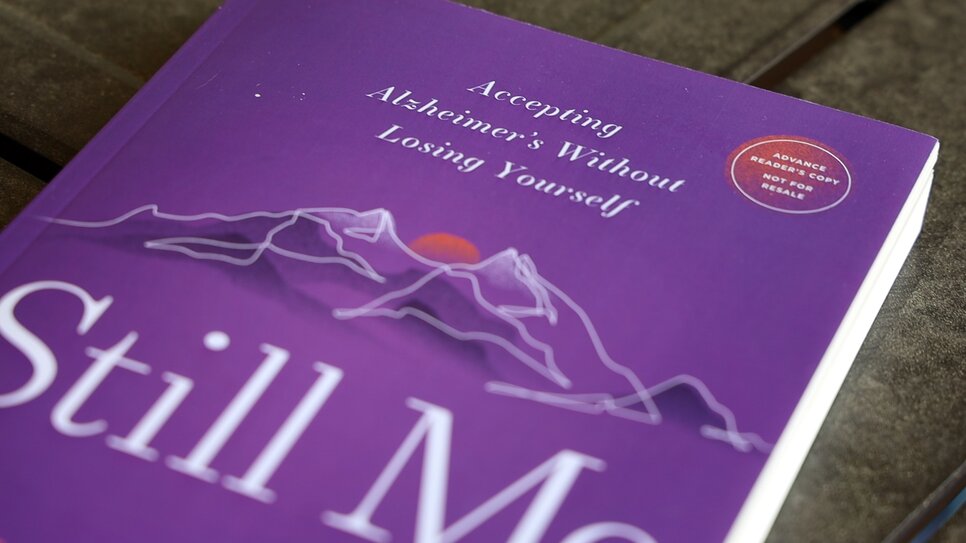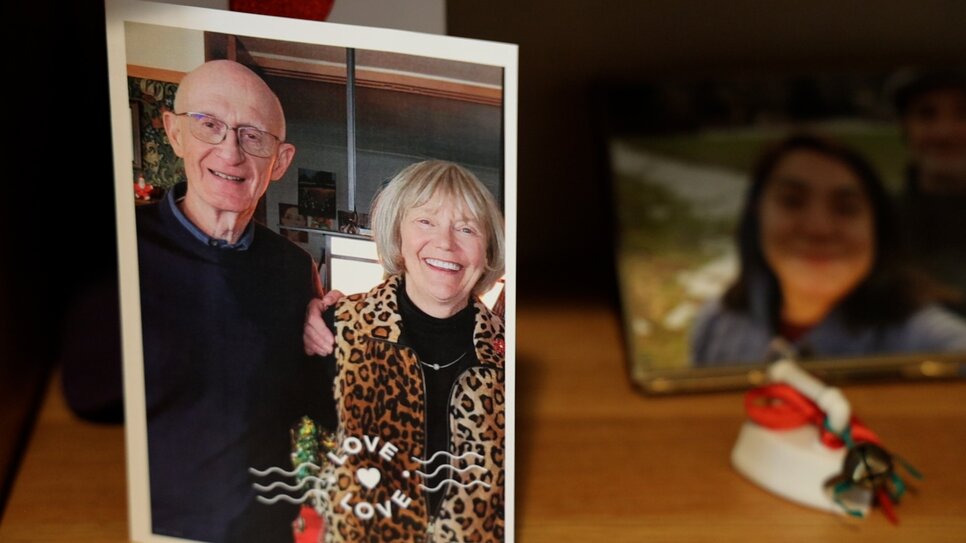Former DU Chancellor Rebecca Chopp reflects on living with Alzheimer’s, in 'Still Me'
share

BROOMFIELD, Colo. — For five years, Rebecca Chopp has been living with Alzheimer’s disease. Chopp, the former chancellor of the University of Denver, said the initial signs of the disease were subtle, but not like anything she had experienced before.
“I didn’t know enough about Alzheimer’s [to realize] that I was facing some symptoms,” said Chopp.
Chopp said her diagnosis was unusual. In 2018, she saw her doctor for a physical and told the physician about her irregular sleep patterns. She was used to getting just four hours a night but her sleep had more than doubled to nine hours a night. Chopp also told her doctor she got lost on her way to the doctor's office. Her physician gave her a cognitive exam, which she failed. After more cognitive tests, Chopp was diagnosed with mild cognitive impairment due to Alzheimer’sdDisease and made the decision to retire as chancellor.
“At first, the hardest part of having Alzheimer’s was the feeling of losing everything,” Chopp said. “I made the decision I was going to retire. I didn’t want to make a mistake.”
This year, Chopp published “Still Me: Accepting Alzheimer’s Without Losing Yourself.” The book is part research, part memoir. It details her diagnosis, temperament and life experiences that helped her address the diagnosis. Her book also includes a series of chapters on how to strengthen your mind through creativity, spirituality and advocacy.
With the book, Chopp said she wanted to focus on “the importance of affirming oneself as long as you can with this disease.”
Chopp is using this new chapter in her life to educate people about Alzheimer’s. With her friend Ralph Patrick, a dementia consultant, Chopp hosts presentations and educational programs about dementia and Alzheimer’s. Their most significant focus is inspiring people and caregivers to live with the disease.
Patrick and Chopp met in 2022 at a Walk To End Alzheimer’s event in Boulder. There was an immediate connection with Chopp, he said.
“She’s kind of like the friends I’ve never met before. The Irish have the term ‘Anam Cara,’ which means ‘soul friend.’ You know those people when you meet them,” he said.
Patrick’s mother had passed away after a battle with dementia.The loss inspired him to start his dementia consultant business.
Patrick is not a medical or mental health professional, but his goal is to provide advice to dementia caregivers based on his lived experience. For those living with dementia, he helps them break the life-changing news to their family and friends.
“This is a very, very lonely disease. I’ve heard countless caregivers say when their friends found out their loved one had dementia, the friends distanced themselves. It's almost as if they thought the disease was contagious,” he said.
“We just really profoundly connected around wanting to educate people and give the message of, you can live with Alzheimer’s,” Chopp said.

Chopp and Patrick’s mission is to take away the fear of Alzheimer’s.
“People are so scared of [Alzheimer’s] because they think if you get that diagnosis, you [will] fall apart immediately,” she said.
Chopp takes comfort in knowing she can confide in people other than her physician — like her husband, Fred Thibodeau, and her son, Nate Biddle.
Biddle is now one of his mother’s caregivers. He and his wife moved from Fort Collins to Denver to care for Chopp.
“As my mom is facing and living with Alzheimer’s, I’m here to make sure she is able to live every day with joy, to go to all the events, and do what she wants to do that brings her happiness. And of course, that makes me happy,” said Biddle.
Biddle’s main responsibility is driving for his mom. Driving was the hardest thing Chopp had to give up, she said. She first got behind the wheel when she was just 13 years old.
“Driving is, for a girl from Kansas, my independence,” said Chopp, “I’ve always been able to pick up and drive, run to the store, run errands, and drive to go on hikes.”
Losing part of her independence has been a struggle for Chopp. Biddle knows she’ll be strong through this fight.
“My favorite thing about my mom is that she is a warrior. She is willing to put herself first and foremost to help others,” said Biddle
Chopp’s husband is her primary caregiver. “I watch her like a hawk. I’m very protective of her. I think I drive her crazy sometimes,” said Thibodeau.

Thibodeau and Chopp’s favorite pastime is driving up to the mountains in the Summit County area and visiting the shops and restaurants.
“I define my job as just doing everything I can to make it easier for her to do the things she wants to do. Plus, it's hard for me to say no now. So pretty much now, whatever she wants, she gets,” said Thibodeau
“They’ve both stepped up wonderfully,” Chopp said of her husband and son.
Her husband bought an Alaskan Klee Kai named Budi, which, in fact, helped Chopp finish her book. Her neurologist suggested she get two hours of exercise a day to keep her mind healthy. After she took Budi on walks, she would sit down in her office and write.
“Budi would join her in her office, and she would go at it, and when he got hungry, he let her know. So it was fun for the two of them,” Thibodeau said.
While dementia and Alzheimer’s are similar, there are differences, said Dr. Tara Carlisle, a behavioral neurologist at UCHealth.
Dementia is an umbrella term that encompasses various conditions, including Alzheimer’s disease. Alzheimer’s is a specific disease that causes dementia by progressive memory loss and cognitive decline.
Women are more likely than men to be affected by Alzheimer’s disease. Data from the Alzheimer’s Association shows that about two-thirds of the roughly 5 million Americans living with the disease are women.
Carlisle said the most significant factors contributing to Alzheimers’s are aging or being a woman.
In the past, Carlisle said the diagnosis of Alzheimer’s disease could not be done until autopsy.
Now, medical professionals can conduct a lumbar puncture, also known as a spinal tap, where they can analyze the fluid composition that bathes the brain and spinal cord. This fluid can then be analyzed for proteins that are linked to Alzheimer’s disease.
For now, Chopp is focused on what she can control.
“It's not about the success of a career or making money or seeing billions of people a day; it's about doing small things to help people get educated about advocacy, hanging out with my husband and [family],” Chopp said. “That all gives me strength and meaning.”
